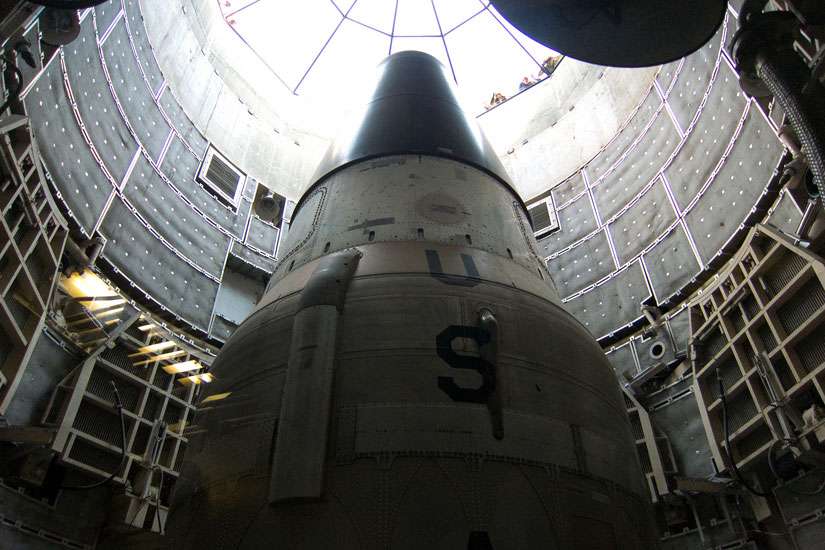"Christianity and Islam share a commitment to love and respect for the life, dignity and welfare of all members of the human community," said the declaration, dated Aug. 18 and made public Aug. 24. "Both traditions reject transgressions and injustices as reprehensible, and oppose any actions that endanger the life, health, dignity or welfare of others. We hold a common commitment to peaceful coexistence and mutual respect."
The declaration, which is under 500 words, said: "We regard the development and use of weapons of mass destruction and acts of terrorism as immoral. Together we are working for a world without weapons of mass destruction. We call on all nations to reject acquiring such weapons and call on those who possess them to rid themselves of these indiscriminate weapons, including chemical, biological and nuclear weapons."
Last year, Iran signed a Joint Comprehensive Plan of Action with the United States and the other permanent members of the U.N. Security Council, including Russia, China, France and the United Kingdom, along with Germany and the European Union. In it, Iran agreed to restrictions on its nuclear development program lasting a decade or longer in exchange for the easing of economic sanctions imposed on the country by the Security Council since 2006.
The United States has had such sanctions on Iran since late 1979, the start of a hostage siege at the U.S. embassy in Tehran, Iran's capital, which lasted 444 days.
"We oppose all acts of terrorism, especially those that directly target innocent civilians, whether the perpetrator is a state, a nonstate group, or an individual. We also reject indiscriminate sanctions and other policies that impose harm on innocent civilians, especially the most vulnerable," the declaration said.
"We remain gravely concerned by the spread of extremist ideologies, often fueled by superficial and erroneous readings of religious texts, that negate the inherent worth and dignity of every person, regardless of religious belief," it continued. "We call upon religious and community leaders to confront the spread of such ideologies that induce sectarianism and violence."
The declaration called terrorism and violent extremism "perversions of authentic religious belief."
"The guilt of terrorist acts should not be assigned to members of an entire religion, nationality, culture, race or ethnic group," the religious leaders said. They said "firm determination and cooperation" is required to counter such violent extremism and "address its root causes."
"The human family must collectively and genuinely confront poverty, unemployment, the worship of money, ignorance, discrimination, armed occupation, military aggression, injustice and the cultures of intolerance, supremacy and impunity," they said.
The religious leaders said they support "the legitimate right of self-defense and affirm a nation's right to use proportionate and discriminate force to protect its people against transgression and to restore their rights."
But they condemn "the forced expulsion of people from their homelands and affirm their right to return as well as the international community's responsibility to facilitate a restoration of their rights."
They added, "Peaceful coexistence is built on equity and justice. We call upon all to work toward developing a culture of encounter, tolerance, dialogue, and peace that respects the religious traditions of others.
The religious leaders committed themselves "to sustained, active interreligious dialogue that transcends governments and national boundaries, serves the common good of the whole human family, and reflects our shared values."
Signing the declaration were Bishop Oscar Cantu of Las Cruces, New Mexico, chairman of the U.S. bishops' Committee on International Justice and Peace, and Cardinal Theodore E. McCarrick, retired archbishop of Washington, who is a committee member. Iran's signatories were Ayatollah Ali-Reza A'arafi, senior member of the Supreme Council of the Society of Qom Seminary Scholars and president of Al-Mustafa International University, and Abdul-Majid Hakim-Elahi, director of the International Affairs Office of the Society of Qom Seminary Scholars.
Also taking part in the talks were Bishop Richard E. Pates of Des Moines, Iowa, and Auxiliary Bishop Denis J. Madden of Baltimore. They and their Iranian counterparts engaged in what the declaration called a "moral and religious dialogue" June 5-10 in Rome. This followed similar talks in Qom, Iran, in 2014.


